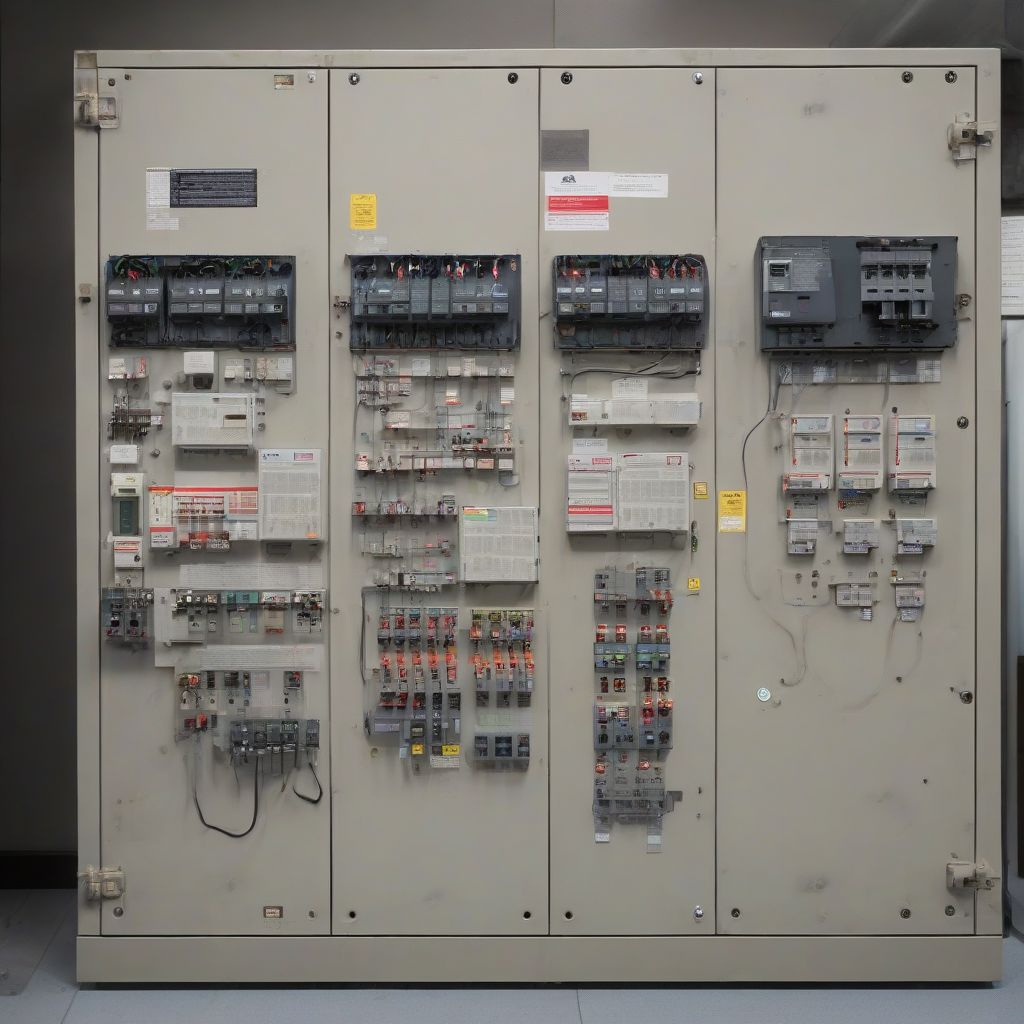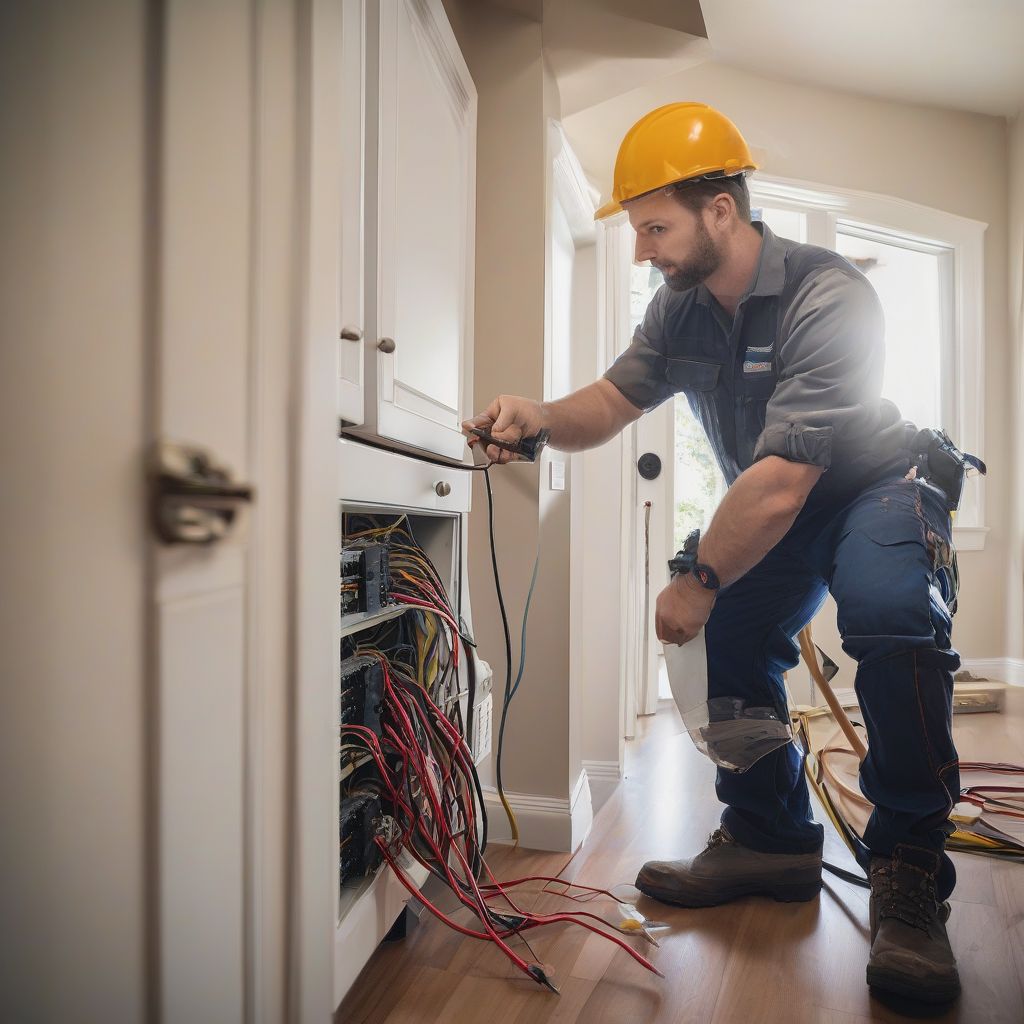Imagine this: it’s a stormy night, the wind is howling outside, and you’re cozy inside your home. Suddenly, you smell something burning. You realize it’s coming from your old, overloaded electrical outlet. Scary, right? Outdated electrical systems can pose serious safety hazards. But the good news is, with a few key updates, you can dramatically increase the safety of your home and gain peace of mind. Let’s explore the essential electrical upgrades that will make your home a haven of safety and comfort.
Why Prioritize Electrical System Updates?
Electrical issues are a leading cause of house fires. Faulty wiring, overloaded circuits, and outdated components create fire hazards and put your family at risk. Investing in electrical system updates is an investment in safety, preventing potential disasters and protecting what matters most.
Key Electrical System Upgrades for a Safer Home
1. Upgrade Your Electrical Panel
Your electrical panel is the heart of your home’s electrical system. Older homes often have outdated panels that can’t handle the demands of modern appliances and devices. This can lead to overloaded circuits, tripped breakers, and even electrical fires.
Signs You Need an Electrical Panel Upgrade:
- Frequently tripped breakers
- Flickering lights, especially when appliances are running
- Warm or discolored outlets or switches
- Burning smells coming from outlets or the electrical panel
- A buzzing sound from the electrical panel
Upgrading to a modern electrical panel with higher amperage will ensure your system can handle your family’s electrical needs safely and efficiently.
 Modern Electrical Panel
Modern Electrical Panel
2. Install GFCI Outlets
Ground Fault Circuit Interrupter (GFCI) outlets are essential safety devices, especially in areas where water and electricity might mix, such as kitchens, bathrooms, and outdoor spaces. They instantly cut off electricity if they detect a ground fault, preventing potentially fatal electrical shocks.
Consider Replacing Standard Outlets with GFCIs in:
- Bathrooms
- Kitchens
- Laundry rooms
- Basements
- Garages
- Outdoor areas
3. AFCI Protection: Preventing Fires Before They Start
Arc Fault Circuit Interrupters (AFCIs) are designed to detect and prevent a dangerous type of electrical fault known as an arc fault. These arcs can generate extreme heat, potentially igniting surrounding materials and causing fires. AFCI protection is now a requirement in most areas of new construction.
Where to Install AFCI Protection:
- Bedrooms
- Living areas
- Dining rooms
- Hallways
4. Inspect and Upgrade Wiring
Older homes, especially those built before the 1960s, may have outdated wiring systems that can’t handle today’s electrical demands. Aluminum wiring, knob-and-tube wiring, and old, brittle wiring can all pose significant fire hazards.
Signs Your Home May Need a Wiring Upgrade:
- Discolored or warm outlets or switches
- Burning smells coming from outlets or appliances
- Frequent tripped breakers or blown fuses
- Flickering or dimming lights
If you notice any of these signs, it’s crucial to call a licensed electrician to inspect your wiring and recommend necessary upgrades.
 Electrical Wiring Inspection
Electrical Wiring Inspection
5. Surge Protection for Your Electronics
Power surges, often caused by lightning strikes or power grid fluctuations, can damage or destroy your valuable electronics. Surge protectors act as a buffer, absorbing excess voltage and protecting your devices.
Essential Surge Protection:
- Whole-house surge protectors: Installed at your electrical panel, these provide comprehensive protection for your entire electrical system.
- Individual surge protectors: Power strips with surge protection safeguards individual devices like computers, televisions, and gaming consoles.
6. Don’t Overlook Outdoor Lighting Safety
Outdoor lighting enhances safety and security, but it’s important to ensure your outdoor fixtures are properly rated for outdoor use and weatherproof.
Outdoor Lighting Tips:
- Use weatherproof fixtures and bulbs rated for outdoor use.
- Consider LED lighting for energy efficiency and longevity.
- Install motion sensor lights for added security and convenience.
7. The Importance of Professional Electrical Inspections
Electrical work is best left to the professionals. Regular electrical inspections by a qualified electrician are crucial for identifying potential hazards and ensuring your system meets safety standards.
When to Schedule an Electrical Inspection:
- When buying a new home
- After any renovations or additions
- If you experience recurring electrical problems
- At least every 3-5 years for older homes
Conclusion: Invest in Safety, Invest in Peace of Mind
Your home should be a safe haven, and updating your electrical system is a fundamental part of making that a reality. By addressing potential hazards and embracing modern safety features, you can significantly reduce the risk of electrical fires, shocks, and other dangers. Remember, electrical work is best left to the professionals. Consult with a qualified electrician to discuss your specific needs and create a safer, more secure home for you and your loved ones.
Do you have any questions about electrical system updates for a safer home? Share your thoughts in the comments below!
[amazon bestseller=”surge protectors”]
